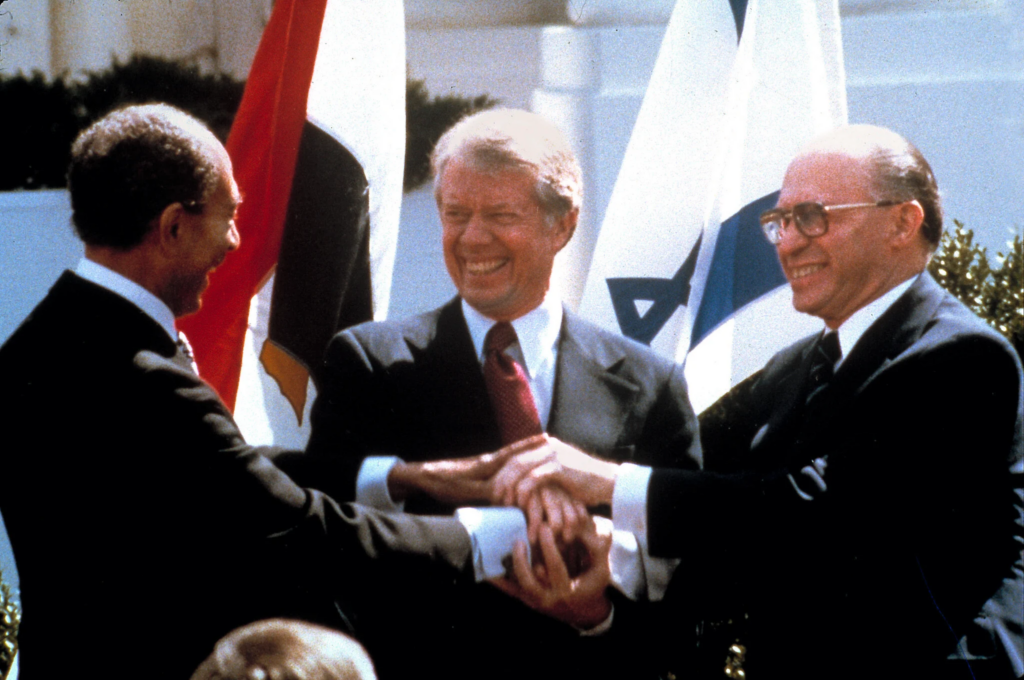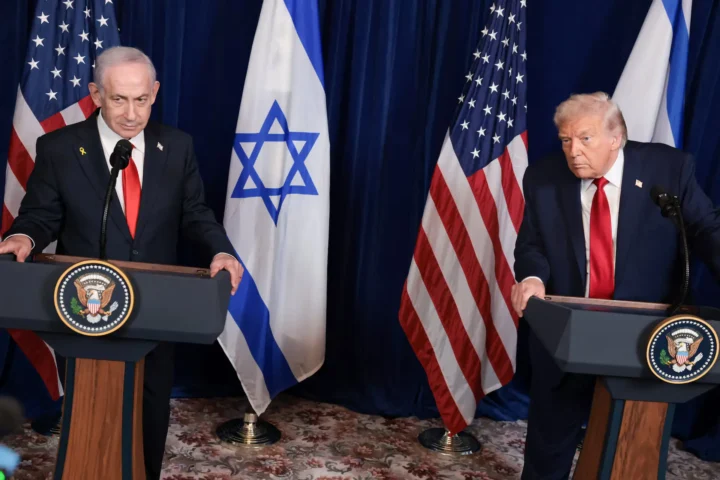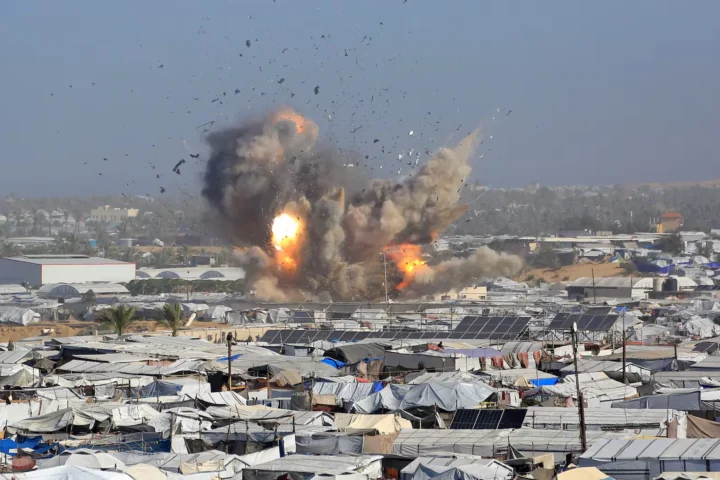In September 1978, amid the wooded seclusion of Camp David, U.S. President Jimmy Carter orchestrated a diplomatic miracle. For 13 tense days, Carter mediated between Egyptian President Anwar al-Sadat and Israeli Prime Minister Menachem Begin, two leaders entrenched in decades of hostility. The talks were on the brink of collapse when Begin, steadfast in his refusal to compromise further, announced he was leaving. Carter, grasping at the personal bond they had forged, made a poignant gesture. He presented Begin with photographs of the three leaders, each addressed to Begin’s grandchildren by name. The simple act moved Begin to tears and ultimately brought him back to the table. By day’s end, a historic agreement was reached, paving the way for the Camp David Accords and the enduring Egyptian-Israeli peace treaty.

Such moments epitomize Carter’s foreign policy: a blend of human empathy and strategic resolve. While critics of his time dismissed him as weak and ineffectual, Carter’s one-term presidency achieved a foreign policy legacy few two-term presidents can rival. His vision was grounded in liberal internationalism, eschewing military force in favor of diplomacy. He combined idealism—rooted in human rights—with hard-nosed pragmatism, navigating Cold War rivalries and global crises with a unique finesse.
The Cold War Chessboard
When Carter entered office in 1977, the Cold War loomed large. The Soviet Union’s influence stretched across Africa, its nuclear arsenal was swelling, and Eastern Europe remained locked under communist regimes. Meanwhile, America’s military strength was in decline, its economic clout waning, and NATO allies hesitant to bolster their defenses. Carter campaigned on a dovish platform, promising to reduce military expenditures and prioritize human rights over realpolitik. Yet, once in office, he recognized the need for a robust counter to Soviet aggression.
Carter reversed post-Vietnam defense cuts, increasing military spending by 12% over his term. He laid the groundwork for major weapons systems later credited to the Reagan administration, such as the stealth bomber and advanced cruise missiles. When the Soviet Union invaded Afghanistan in 1979, Carter’s hawkish response included sanctions, a grain embargo, and the reinstatement of the draft. His Carter Doctrine, declaring U.S. willingness to use force to secure Persian Gulf oil, remains a cornerstone of American foreign policy.
On nuclear arms, Carter negotiated the SALT II treaty with Moscow, though its ratification was derailed by the Soviet invasion of Afghanistan. He also persuaded NATO allies to host intermediate nuclear weapons, a strategy Soviet leader Mikhail Gorbachev later acknowledged influenced his decision to pursue disarmament. Simultaneously, Carter deepened ties with China, formalizing diplomatic relations in 1979 and enshrining the policy of “strategic ambiguity” toward Taiwan—a framework that endures to this day.
A Crusade for Human Rights
Carter’s most defining foreign policy principle was his unwavering commitment to human rights. In Latin America, he ended U.S. support for brutal dictatorships, pressuring regimes in Argentina, Brazil, and Chile to release political prisoners. He championed the Panama Canal Treaty, transferring control to Panama and earning the ire of conservatives but restoring U.S. credibility in the region. The State Department’s first annual Human Rights Report, launched under his watch, remains a powerful tool for global accountability.
Carter’s human rights advocacy extended to the Soviet Union, where he openly supported dissidents like Andrei Sakharov and Natan Sharansky. Soviet ambassador Anatoly Dobrynin later admitted that Carter’s policies contributed to liberalization within the USSR and played a role in ending the Cold War.
Camp David and Beyond
Carter’s crowning achievement was brokering peace between Egypt and Israel. Guided by his religious convictions and strategic foresight, he labored tirelessly to bridge a chasm many deemed insurmountable. Over nearly two weeks, Carter personally drafted agreements, mediated between adversaries who couldn’t face each other, and leveraged every ounce of personal diplomacy. The resulting treaty ended decades of war and established a framework that has withstood the volatile currents of Middle Eastern politics.
However, Carter’s ambitious vision extended further. The Camp David Accords called for Palestinian autonomy—a goal that remains unfulfilled. Carter’s successor, Ronald Reagan, chose not to pursue the delicate work of securing a broader peace, a missed opportunity that reverberates in the region’s ongoing conflicts.
The Iranian Quagmire
Carter’s tenure was not without its failures. The 1979 Islamic Revolution in Iran, and the subsequent hostage crisis, marred his presidency. Critics blamed his administration for failing to predict the shah’s downfall and for mishandling the ensuing chaos. Yet, Carter’s focus on the Egypt-Israel peace process partly explains this oversight. Moreover, his cautious diplomacy during the hostage crisis prioritized the captives’ safety over aggressive military action. The hostages’ eventual release—secured minutes after Carter left office—was overshadowed by allegations that Reagan’s campaign delayed the resolution for political gain.
A Legacy of Peace
After leaving office, Carter continued his quest for peace through the Carter Center, promoting democracy, monitoring elections, and nearly eradicating Guinea worm disease. His dedication to global well-being earned him the Nobel Peace Prize in 2002, solidifying his reputation as a statesman devoted to humanity’s betterment.
Carter’s presidency laid the groundwork for many enduring policies. His strategic ambiguity with China, emphasis on human rights, and deft navigation of Cold War tensions influenced subsequent administrations. The Camp David accords remain a testament to the power of diplomacy, offering a beacon of hope for conflict resolution in today’s fractured Middle East.
As Carter spends his twilight years in hospice care, the world can look back on his presidency as a reminder that strength lies not only in wielding power but in the courage to pursue peace. The crises of today call for leaders who, like Carter, dare to bridge divides, place humanity above politics, and envision a world where diplomacy triumphs over conflict.











